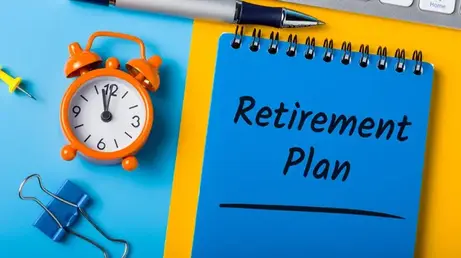
In times of economic uncertainty, with market swings, rising inflation, and looming questions about job security it’s natural to wonder, “Should I be saving more or should I invest?” As CPAs, we are trained to see more than just the numbers and focus on building long-term financial well-being. Here’s how I would recommend that individuals and families balance the need for caution and the potential for growth, even during uncertain times.
1. Check your financial health
Before making any major financial choices, ask yourself, “How strong is my financial foundation?” Assessing the following will help you arrive at an answer.
- Emergency savings: Ideally, you should have 3-6 months’ worth of essential expenses readily available in cash. These funds must be liquid, meaning that they are ready to be used at any time.
- Debt management: High-interest debts (like credit cards) should be minimized or structured into a repayment plan. Understanding how much debt you currently have (and where it lives) can help you figure out your payment priorities.
- Insurance coverage: What type of health, disability, and life insurance coverage do you have? All of these can act as financial buffers.
If your personal finances needs attention, focus on saving and eliminating high-interest debt before making any further investments. In times of uncertainty, liquidity - having accessible cash - can provide not just financial security, but peace of mind.
2. Understand your risk tolerance when investing (and revisit it frequently)
Risk tolerance isn’t a one-size-fits-all scenario; it changes depending on your situation, stage in life, and the broader economy.
Here are a few questions to reflect on:
- Could I withstand a 20% or 30% drop in my investment value without needing to sell them?
- Am I investing money that I won’t need for at least 3-5 years?
- Are my current investment choices helping or harming my progress towards my financial goals?
If you’re feeling nervous, it’s okay to adjust your asset mix. If you want to shift slightly towards a more conservative portfolio, you might want to consider investments like bonds, GICs, or money market funds. The goal isn't to time the market, but to invest in a way that aligns with your risk tolerance.
3. Stay the course - with small adjustments
One of the biggest investment mistakes in uncertain times is making large, reactive changes - like selling after the market falls, or going “all in” after a sudden rally. It’s very common to make decisions based on emotion, but such choices likely won’t benefit your financial future.
Consider making small adjustments and using strategies like these:
- Dollar-cost averaging: Investing smaller amounts consistently over time smooths out market ups and downs. For example, you could invest $100 a month to purchase the same ETF regardless of the price.
- Rebalancing your portfolio: After major stock market movement, you may need to adjust your holdings back to your target mix. A good practice would be to revisit your portfolio mix at least once a year and rebalance as necessary.
- Avoiding emotional trading: Staying invested according to your plan usually outperforms trying to guess the best times to buy and sell. Statistics show that time in the market frequently beats timing the market.
Think of investing like planting a tree: You don’t dig it up every time the weather changes - you water it, protect it, and give it time to grow.
4. Cash isn’t always the enemy
Savings accounts and short-term GICs (guaranteed investment certificates) may offer higher interest rates that can be beneficial for any cash that you may be holding. Holding more cash or low-risk savings can be a smart move if:
- You have short-term goals (e.g., buying a home in 1-2 years)
- You anticipate needing quick access to money
- You simply feel better sleeping at night with a cash cushion
Cash gives you options - and during uncertain times, options and liquidity are powerful.
5. Play the long game
Economic downturns are normal. Historically, recessions happen about every 7-10 years. Markets have always recovered, often stronger than before. They say that history doesn’t repeat itself but it often rhymes.
If your goals are 5, 10, or 20 years away, staying invested, even at a slower or smaller pace, is usually the smartest move. Timing short-term ups and downs is almost impossible, but consistently contributing to your future is always in your favor.
Final thoughts
There’s no one-size-fits-all answer when deciding on the benefits of saving vs. investing. It comes down to your financial foundation, your risk tolerance, and your personal goals. In uncertain times, the most powerful financial strategy is often a balanced one: Save enough to feel secure, invest enough to keep growing.
Disclaimer: This article is not intended as financial advice, and you should not make financial decisions based solely on the information presented.
Nelson Soh, CPA, CA is a TEDx speaker, best-selling author of Life Literacy and the 100 Day Money Mindset Journal, financial literacy expert, and volunteer with CPABC’s Financial Literacy Program. Nelson is also the co-founder of FSQ Consulting, a business consulting firm, and one of CPA Financial Literacy Program volunteers. You can follow Nelson on LinkedIn, TikTok, or Instagram to learn more about financial and life literacy.



